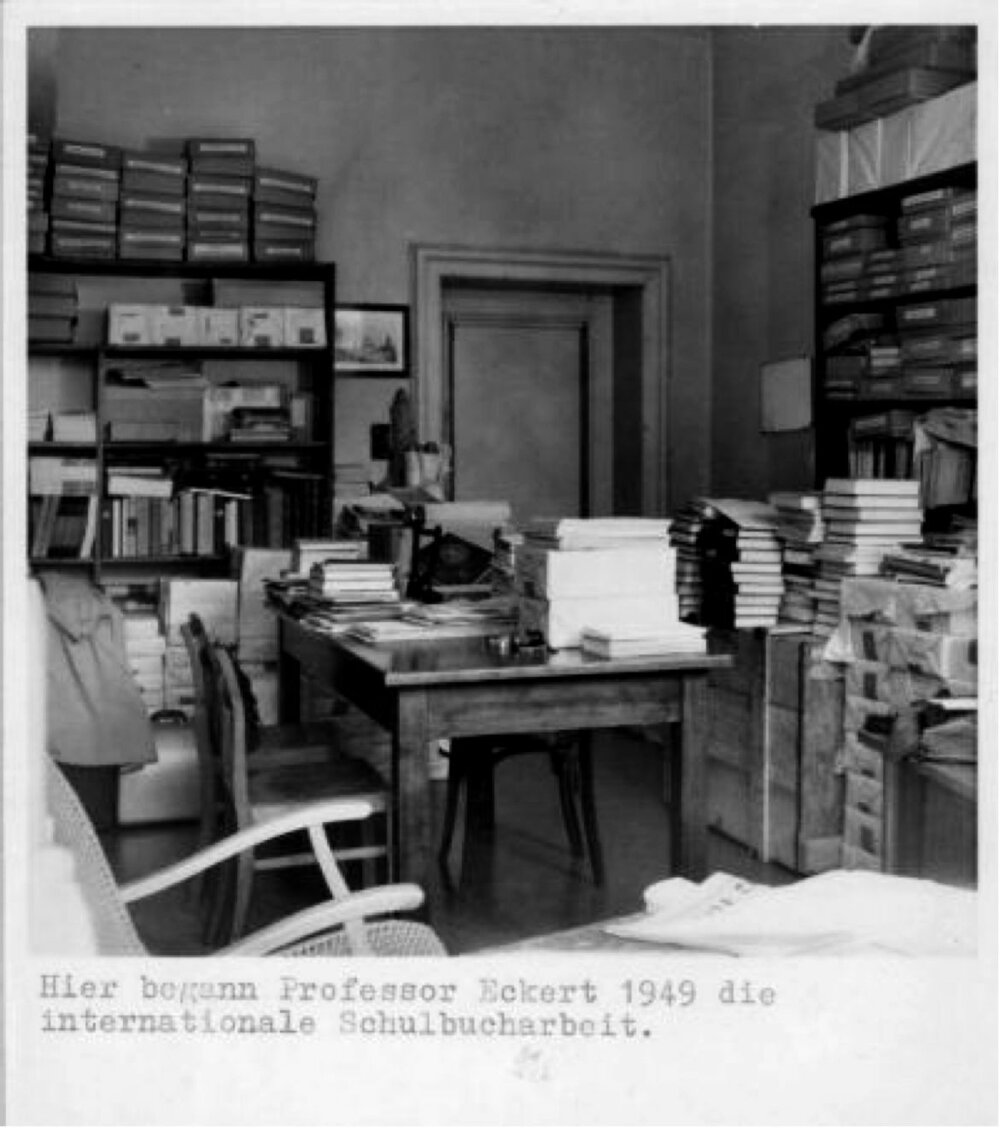
After the hyper-nationalism of the First World War, the League of Nations promoted international textbook revision. The detrimental role played by textbooks in shaping the concept of the enemy had become abundantly clear.
UNESCO continued this work after the Second World War. The Braunschweig historian Georg Eckert, who later became the chairman of the German UNESCO commission, was one of the catalysts behind this renewed textbook revision. He campaigned for international communication and understanding through cooperation on textbooks and history teaching. Until his death in 1974 he organised bi- and multilateral textbook conferences and meetings, primarily with Germany’s neighbours and former enemies. The Georg Eckert Institute was founded in its current form in 1975 as the result of a new law passed by the state parliament of Lower Saxony.
Important steps on the long path to international understanding include the 1951 'Franco-German Agreement on Controversial Issues in European History' (Franco-German Textbook Commission) and the 1975 'Recommendations for History and Geography Textbooks in the Federal Republic of Germany and the People's Republic of Poland.' (German-Polish Textbook Commission). The latter generated a long and sometimes embittered controversy. In 1985, German and Israeli scholars agreed on the 'German-Israeli Textbook Recommendations' (Israeli-Palestinian Textbook Project).
In 1985, the Georg Eckert Institute was awarded the UNESCO Prize for Peace Education.
The reunification of Germany in 1990 provided the chance for all states in the reunited Germany to contribute to the funding of the Institute. This opportunity was taken up by all states except Mecklenburg-West Pomerania, Baden-Württemberg und Bavaria.
The government of Lower Saxony’s Academic Commission was invited by board of trustees to evaluate the Institute in 2004. The Commission recognised the national significance of the work conducted by the Institute and that it lay in the national scientific interest and therefore proposed it be co-financed by the federal government while remaining under state responsibility, preferably within an organisation such as the Leibniz Association (WGL).
The Georg Eckert Institute joined the Leibniz Association in 2011. It has been known as the Leibniz Institute for Educational Media | Georg Eckert Institute since 2021.